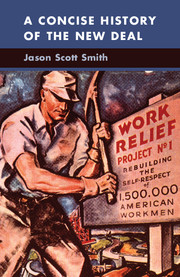5 - Opposition and Backlash, 1937–1939
Published online by Cambridge University Press: 05 July 2014
Summary
In January 1937, Franklin Roosevelt delivered one of the more remarkable inaugural addresses in American history. After reviewing the state of the nation following his first term as president, FDR grimly turned to what he termed as “the challenge to our democracy.”
In this nation I see tens of millions of its citizens – a substantial part of its whole population – who at this very moment are denied the greater part of what the very lowest standards of today call the necessities of life. I see millions of families trying to live on incomes so meager that the pall of family disaster hangs over them day by day. I see millions whose daily lives in city and on farm continue under conditions labeled indecent by a so-called polite society half a century ago. I see millions denied education, recreation, and the opportunity to better their lot and the lot of their children. I see millions lacking the means to buy the products of farm and factory and by their poverty denying work and productiveness to many other millions.
FDR concluded, “I see one-third of a nation ill-housed, ill-clad, ill-nourished.”
Why did FDR deliver a speech that seemingly dwelled on the New Deal’s failures in combating the Great Depression? Why, in a moment of great personal and professional triumph, did FDR not choose instead to emphasize the positive? After all, he had just been reelected by a huge margin, trouncing Republican Alf Landon in every state save Maine and Vermont. In his first term, FDR had cut unemployment in half. As a percentage of the civilian labor force, unemployment fell from 20.9 percent in 1933 to 9.97 percent in 1936. The nation’s economic productivity had begun to improve and, politically, Roosevelt and the Democrats passed a raft of legislation and were rewarded handsomely for their efforts at the ballot box in both the 1934 and in 1936 elections.
- Type
- Chapter
- Information
- A Concise History of the New Deal , pp. 124 - 148Publisher: Cambridge University PressPrint publication year: 2014



